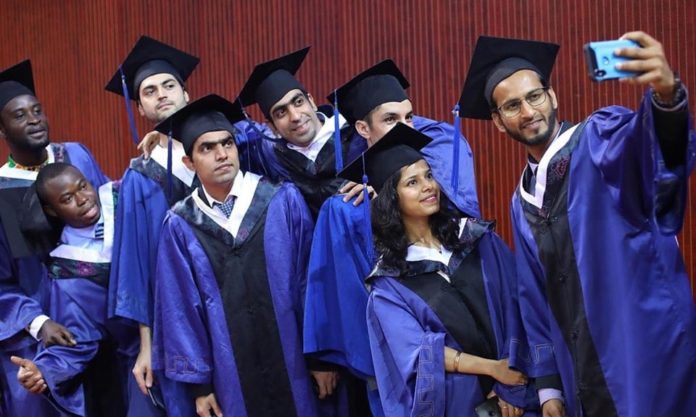International students in China are back in the news again, this time for the treatment they receive that favours them over their local compatriots when it comes to university admission standards. Time to level the playing field, says a proposal attracting much support online.
The call has come from a member of the National Committee of the Chinese People’s Political Consultative Conference (CPPCC). Gao Yanming, who is also Chairman of the Hebei Ocean Shipping Company, proposed that international students should not receive any preferential treatment.
On 7 March, the Global Times reported Gao as saying, “Chinese universities should not blindly pursue a quota of enrolled students while ignoring the quality of students, compromising the reputation of national academia and breaching education rights”.
2018 saw 492,185 international students enrolled in mainland China, from 196 countries and regions, says Ministry of Education data.
In the field of education in China, the word “international” means a foreign-passport holder. And this also applies to Taiwan, Hong Kong and Macao.
This is where it gets sticky. Parents who envision a future for their child in which they may attend a prestigious university abroad often go to extremes. Arranging to give birth elsewhere, the child then has the right to attend a school in China licensed to admit foreign-passport holders only. In Nanjing, such schools include The British School of Nanjing and Nanjing International School.
For the super wealthy, they might invest in a country with favourable policies in this regard. A million X can be enough to secure citizenship which can be passed on to descendants. Then there are the “immigration services companies” and the even-more disreputable agents that “sell” passports and identity cards for so-called, low-income nations.
As the child matures, they will also find the law in China skewed when it comes to university life. Under the present system, international students may enter Chinese universities with examination scores lower that those for Chinese nationals. A score of between 300 and 400 in the university entrance examination (Gaokao) can secure them admission. Chinese candidates, on the other hand, likely need well over 600 to go to a decent uni.
International Students & Chinese Parents Alike Exploit Loophole
It is this discrepancy that is at the heart of the debate. As of last Sunday, 7 March, the hashtag, “proposal for raising the admission standards for international students in China”, on Weibo had attracted 140 million views. Many of those were from Chinese parents looking to take advantage of the loophole.
But, while China has often provided foreigners with preferential treatment as a way to lure talent, change is in the works.
Some industry analysts are citing that reform is already taking place; they have called Gao’s proposal unprofessional. The famed Tsinghua University, for example, moved away from paper-based exams in 2016. Personal Statements submitted online in lieu since have upped the quality of international students, they argue.
Yet, the whole controversy may well end up being academic, so to speak. With growing numbers of universities abroad accepting Gaokao scores to bolster their income from Chinese students, there will be little need to go to the hassle and expense of acquiring a foreign passport. For like it or not, China is already a fully-fledged member of the global education club.









